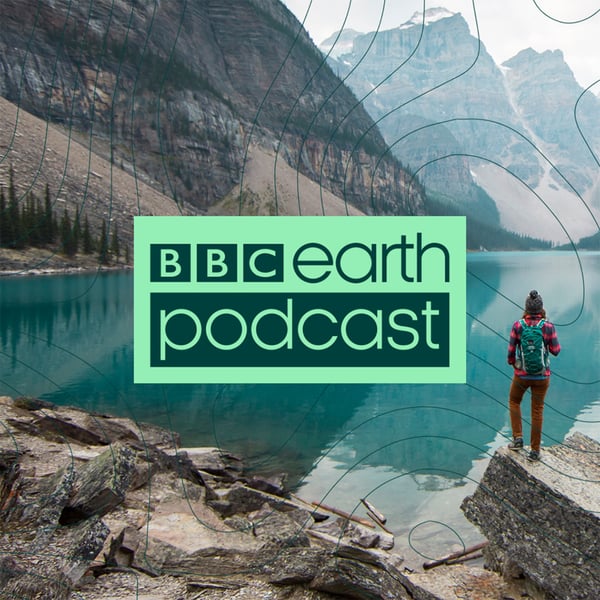Defenders of the Earth
BBC Earth Podcast
Jenkins Laura
4.6 • 611 Ratings
🗓️ 8 November 2022
⏱️ 40 minutes
🧾️ Download transcript
Summary
Sebastian and Rutendo celebrate nature’s defenders in all their forms. They argue that vultures should get more credit for their vital role as scavengers. Their super-acidic stomachs kill off deadly bacteria, like anthrax, that accumulates onrotting carcasses. This prevents the spread of disease and recycles nutrients back into the environment.
Molecular biologist Mike Kolomiets tells us that the fragrance of newly mown grass isactually a scream for help and a warning to nearby plants that a herbivore is around. Grass can defend itself by releasing toxic metabolites and summoning the assistance of parasitic wasps that attack plant-eating caterpillars.
We hear from prominent Brazilian climate activists Sônia Guajajara and Celia Xakriabá, both of whom believe that inidigenous women have a vital role to play in
the fight to preserve Brazil’s vast biodiversity.
Biologist and comedian Simon Watt argues that to protect the biodiversity of our planet we need to be less fixated on cute creatures which are “lucky enough to have
a face”, and take more interest in Earth’s ugly animals.
Credits:
The BBC Earth podcast is presented by Sebastian Echeverri and Rutendo Shackleton.
This episode was produced by Rachel Byrne and Geoff Marsh.
The researchers were Seb Masters and Dawood Quereshi.
The Production Manager was Catherine Stringer and the Production Co-ordinator was Gemma Wootton.
Podcast Theme Music was composed by Axel Kacoutié, with mixing and additional sound design by Peregrine Andrews.
The Associate Producer is Cristen Caine and the Executive Producer is Deborah Dudgeon.
Special thanks to:
Mike Kolomiets from Texas A&M University for sharing his research into grass.
Simon Watt from the Ugly Animal Preservation Society.
Alice Aedy for the report from Brazil and her interviewees Sônia Guajajara, Célia Xakriabá.
Interviewee Carl Gerhardt from University of Missouri and Lang Elliot for the amphibious soundscape.
Hosted on Acast. See acast.com/privacy for more information.
Transcript
Click on a timestamp to play from that location
| 0:00.0 | Let me tell you about the time I ended up on the front page of the Philadelphia Inquirer newspaper. |
| 0:07.0 | I was there for a summer on a Science Journalism Fellowship, and I was covering tons of stories about weird animals and the people who study them. |
| 0:16.0 | That's always been my kind of thing. |
| 0:19.0 | But this wasn't one of my stories ending up on the front page, though that did happen. |
| 0:23.7 | This was me, Sebastian, ending up on the front page. |
| 0:28.6 | Let me explain. |
| 0:30.5 | I was in the newsroom this one time with my fellow reporters, and we were sharing other articles that had come out that we were interested in. |
| 0:37.0 | And I saw this one about a new species of deep sea anglerfish, |
| 0:42.6 | you know, big bulbous fish, fangly, big jaws, sharp teeth, glowing lure hanging up on top of it. |
| 0:50.8 | The fish was really cool, and the scientists had learned really cool things about its biology. |
| 0:57.2 | But I couldn't help but notice all of the adjectives that the reporter had used to describe the |
| 1:03.5 | fish were incredibly negative. Things like creepy, monstrous, out of your nightmares. In a story that's supposed to be about |
| 1:13.5 | sharing how cool and interesting this animal is, it's the sort of thing that I've seen |
| 1:18.6 | millions of times already. Once you're aware of it, you cannot stop seeing it. And for whatever |
| 1:26.7 | reason, this time I just went off. |
| 1:30.3 | Why is it that certain animals get described in positive terms, |
| 1:34.3 | and other ones always get thrown under the bus in the same way? |
| 1:38.3 | Even when these animals are the focus of the story, |
| 1:41.3 | when it's about how special and interesting they are. Why aren't they |
| 1:45.0 | portrayed as the heroes? |
| 1:47.0 | Anyway, I had quite a few similar rants during my fellowship there, and on the last day, |
| 1:55.0 | the other reporters on the science team surprised me with probably the sweetest going away gifts I've ever received. |
... |
Please login to see the full transcript.
Disclaimer: The podcast and artwork embedded on this page are from Jenkins Laura, and are the property of its owner and not affiliated with or endorsed by Tapesearch.
Generated transcripts are the property of Jenkins Laura and are distributed freely under the Fair Use doctrine. Transcripts generated by Tapesearch are not guaranteed to be accurate.
Copyright © Tapesearch 2025.

